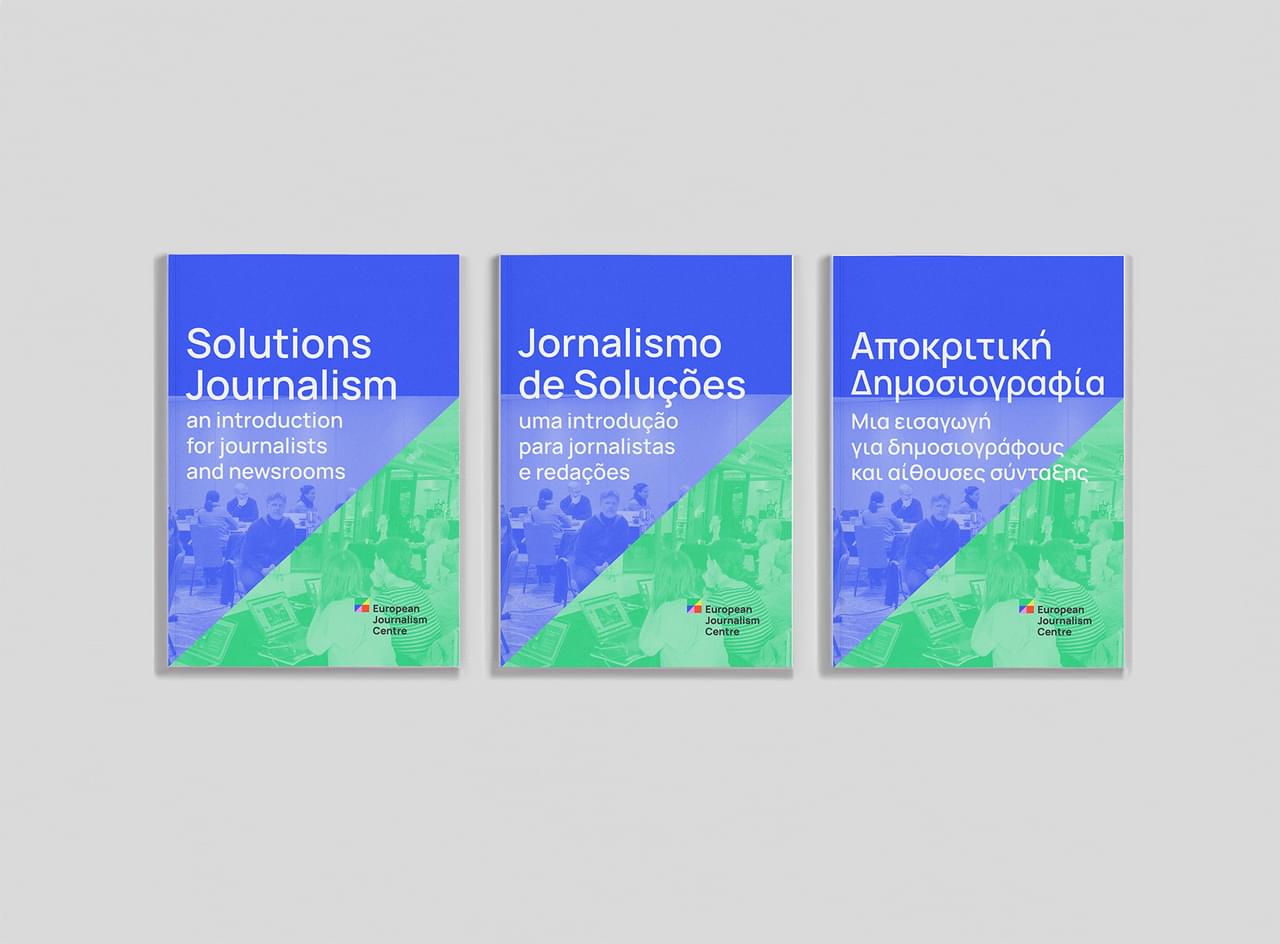
Insights
Can Solutions Journalism unite newsrooms and citizens for Impact: 3 questions with Collectif Antidotes

Delve into the inner workings of the Solutions Journalism Accelerator through our "Solutions, Explained" newsletter. Uncover the potential of Solutions Journalism - Join our subscriber list below.
Gain exclusive access to seasoned insights for mastering solutions journalism, immerse yourself in our extensive network of like-minded changemakers, and be inspired by firsthand reports from individuals actively shaping positive transformations. Don't miss the chance to stay at the forefront of an impactful narrative!
In case you missed our recent Solutions Journalism Q&A blog, you can catch up right here.
Quote: “As solutions journalists we sometimes presume that readers only want positive stories to cope with their eco-anxiety, for example. But we were wrong. The participants of the workshop expressed their need for constructive stories with a critical mind. They are not naive and do not want to be treated as such.”
-Delphine Tayac, Collectif Antidotes

Meet Collectif Antidotes, a French collective of freelance reporters who have been championing solutions journalism for seven years. Notably, they are the creators behind "Bien Urbains," a bimonthly newsletter that explores urban topics through the lens of solutions journalism.
1) For your project, you partner with French media outlets to help them write solutions-oriented stories. Can you walk us through the process of doing so?
We think that the best way that one can appropriate solutions journalism’s tools is to practise. So we decided to convince newsrooms to do so by initiating them to produce a joint solutions story for their own media and our media, Bien Urbains. The first step is to give them the very first basics of solutions journalism and to pursue them right after with an editorial meeting to find a topic to report on in common. Then, we decide to produce two different issues that are complementary or the same story, but in different formats (written and podcast for instance). Some newsrooms want to be very collaborative so we work a lot together to find the sources and the angle, while others choose to be more complementary.
2) You also organised two workshops where experienced journalists in solutions journalism discussed their practices. Tell us a little bit about it.
Our method is to divide the meeting into two. First, we always ask: what is the main problem you face in your practice? Second, we chat about how to deal with it.
The two workshop topics were voted on by the participants. One was about finding good sources and the other was about climate treatment.
We noticed that journalists who practise solutions journalism face very similar problems and questions. A big one is: how to find relevant sources and how to work with them. Especially, how do we explain to sources that we need deeper and more specific information such as results, and limitations?
After this work of collective intelligence, we produce an open-source advice sheet gathering the main points we collected during the meeting. It seems useful because our community following Antidotes seems to read it a lot.
Discover valuable climate reporting advice by clicking here, and access tips regarding sources by clicking here (in French).
3) You believe it is essential to involve non-journalists too and recently organised an event with citizens. What did you learn from it?
This workshop called “Get informed without being depressed“ (translated from French) has helped us understand what citizens really want to read. As solutions journalists we sometimes presume that readers only want positive stories to cope with their eco-anxiety, for example. But we were wrong. The participants of the workshop expressed their need for constructive stories with a critical mind. They are not naive and do not want to be treated as such.
Another point is that they didn’t hear about solutions journalism before. So we think it’s important to keep communicating about what is solutions journalism and why it’s not fluffy news.
Please make a contribution today
Your support will help us continue providing the kinds of opportunities journalists tell us they rely on
Would you like to have a direct conversation about making a donation? Please get in touch.
